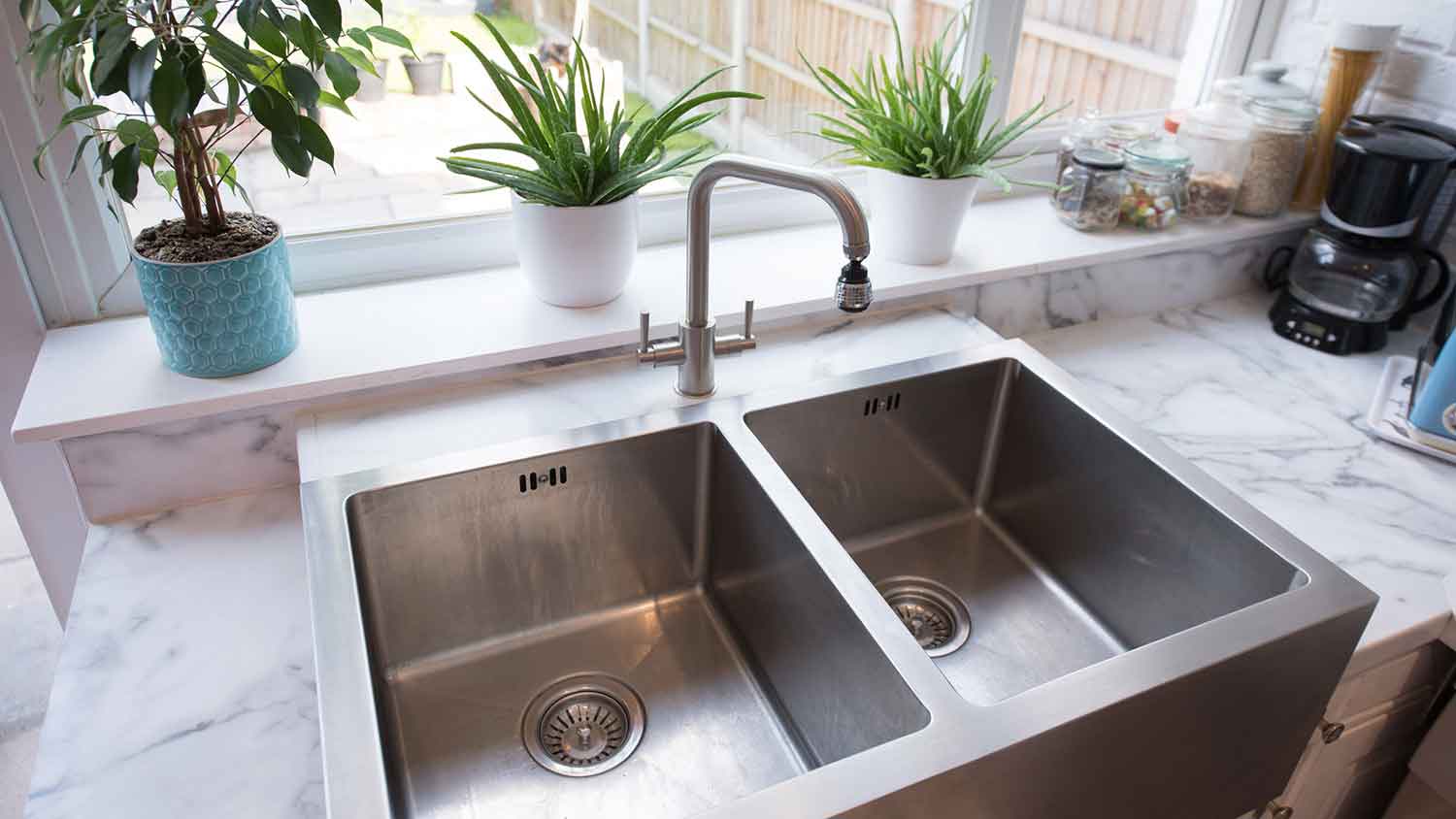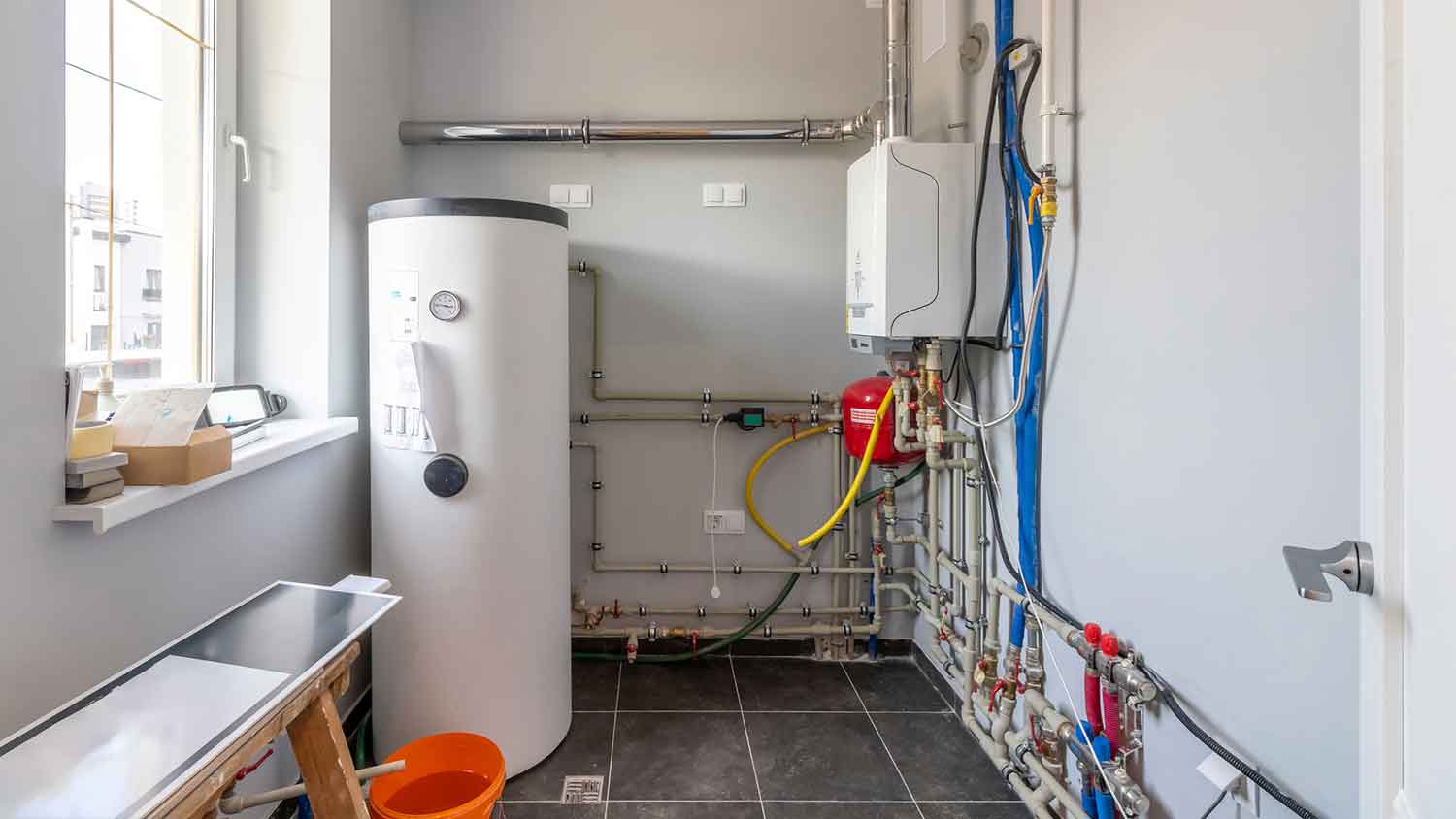
Your solar well pump cost depends on your well depth and flow rate. Explore these cost factors and more to budget for an eco-friendly pump.
Don’t panic—here’s how to take the smell out of your well


There are several reasons that your well water might smell like sewage.
Common culprits are bacteria growth in your drain, groundwater, or water heater.
In more serious cases, broken or overflowing septic tanks can push sewage into the water.
You can clear backed-up drains yourself, but you should call a pro for the rest.
You never want to smell sewage anywhere in your house, but especially not coming out of your taps. So, what do you do if that happens? First, you’ll want to figure out what’s causing it—which may require the help of a professional. Below, we’ll give four of the most common reasons that your well water smells like sewage, with tips on how to fix it.
If you have a well water system, it means that you have a private water source on your property. Instead of relying on city water, your home has a deep underground hole (called a well), which fills up with groundwater. Water leaves the well through a pump whenever you turn on your kitchen sink, run a bath, or do anything else that requires water.
Well water systems are common in rural areas or places that don’t have access to public water from the city. If you have well water, testing and monitoring the water quality is your responsibility. It’s also your job to fix any issues—without the help of your local municipality. That’s why having a local well and pump pro in your contacts comes in handy.

Sometimes, when your well water smells like sewage, it isn’t actually a problem with your water at all. Instead, it could be due to a buildup of things like hair, grease, soap, and food in your drain, all of which can attract odor-producing bacteria.
Fortunately, you can often fix a smelly drain with just a few household products—and without the help of a pro. It’s also important to clean your drains regularly to prevent more severe clogs or backups in the future.
The presence of bacteria within your water source is another potential reason that your water smells like sewage. Both sulfur bacteria and iron (manganese) bacteria can naturally grow in your groundwater, creating an unpleasant stench that smells like rotten eggs.
If this is the issue, you might notice that your water smells even stronger after you haven’t used it for a while. To test this, shut off your water for six hours. Then, fill up your sink with a few inches of cold water and give it a whiff. Do you get a strong sulfur smell? You might have pinpointed the problem—but the only way to be sure is by hiring an expert to test your water quality.
Depending on the exact issue, the pro might recommend installing a carbon filter, treating the water with a chlorine solution, or drilling a new well. If ignored, this type of bacteria can create slime that clogs your well system.

Do you only smell sewage when you use hot water? If so, you might have bacteria inside your water heater. Several factors can cause bacteria to grow in your heater, including if the temperature is too low or if you haven’t used hot water in a while.
You should reach out to a plumber to deal with any problems related to your water heater. If they find bacteria, they might try a few different things to get rid of it, including cranking up the water temperature, treating and flushing the water heater, or replacing the anode rod.
In certain cases, you might actually have sewage in your well water—which not only makes it smell and taste bad but can also make you sick. Sewage can seep into your water in several ways, including if your septic tank or drain field is too close to your well water system. A leaky, overflowing, or cracked septic tank can also force waste into your water.
If you suspect that you have sewage in your well water, stop using the water and call a septic system expert ASAP. Once they figure out the cause, they may decide to shock the well or repair or replace your septic system. If you need one, the average septic system cost is between $3,460 and $11,360.
Going forward, make sure to pump your septic tank every three to five years so it doesn’t spill out into your soil or well.
You may be able to handle a stinky well water problem without professional help, depending on what’s causing it. For example, if your water smells bad because of a gunk-filled drain, that’s something you can troubleshoot on your own. However, if there’s an issue with your septic tank or water heater, that’s when it’s time to call in a local sewer line repair company or plumber.
From average costs to expert advice, get all the answers you need to get your job done.

Your solar well pump cost depends on your well depth and flow rate. Explore these cost factors and more to budget for an eco-friendly pump.

Cisterns can save you money and help the environment. So what’s the cost of a cistern and how does it compare to other rainwater collection systems?

When your water system isn’t working as intended, it’s time to repair your well pump. This cost guide will break down well pump repair costs and the parts involved.

Don’t put up with low pressure or unsafe water—learn more about signs of well pump failure and how to deal with it proactively and efficiently in this guide.

What do you do with a natural spring on your property? Natural underground springs are a good source of clean, free water. But how do you tap into it? Keep reading!

Learn about the different types of water pumps for your home and their benefits. Find the best solutions for your water management needs.